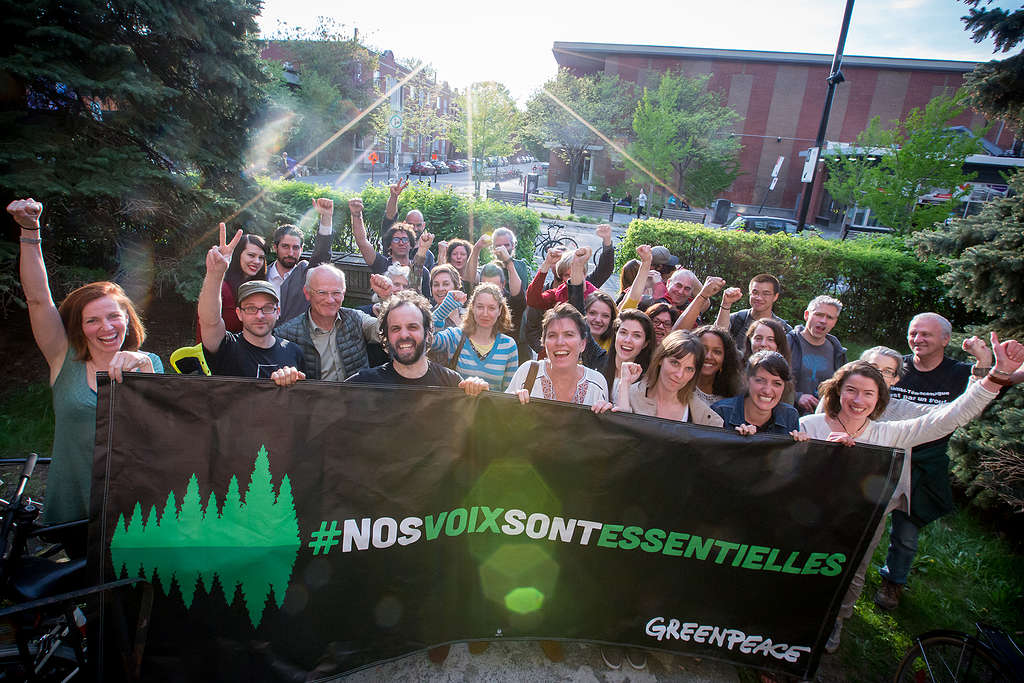How we’re structured
Greenpeace is a global network of independent national and regional Greenpeace organisations (NROs) and Greenpeace International as a coordinating organisation.

Where is Greenpeace located?
Greenpeace is a global network comprised of 25 independent national/regional organisations in over 55 countries across Europe, the Americas, Africa, Asia and the Pacific, as well as a co-ordinating body, Greenpeace International.
Greenpeace International
Greenpeace International is a ‘stichting’ (which translates roughly as foundation) under the laws of the Netherlands. It is based in Amsterdam and its formal name is Stichting Greenpeace Council. It is registered with the Dutch Chamber of Commerce under nr. 41200415; its RSIN number is 006623207.
Greenpeace International’s role within the Greenpeace network includes the following:
- Facilitating the setting of the long-term global campaign programme (The Framework) at a strategic level;
- Coordinating the campaigns carried out by NROs to make sure they are consistent and contribute to the global campaign programme;
- Operating the Greenpeace fleet;
- Monitoring NROs’ strategic and financial performance;
- Developing Greenpeace presences in new priority regions;
- Providing fundraising, HR, training, scientific and legal support to NROs;
- Managing and protecting the Greenpeace trademark;
- Providing cost-effective IT/web support to NROs.
Another core function of Greenpeace International is to redistribute NRO income according to globally agreed priorities. There is an incremental contribution system, which aims to redirect significant funds from established NROs with higher income to newer NROs in developing regions. This reflects our aim to work together as a truly global network, since environmental issues and their solutions do not stick to national borders.
Greenpeace International employs about 260 people, plus the ships’ crews.
The Articles of Association (Statuten) bylaws specify Greenpeace International’s purpose as promoting the conservation of Nature and set out its governance. The Rules of Procedure provide more detailed governance rules.
Greenpeace International’s accounts are subject to annual auditing by independent public accountants, whose examination complies with International Standards of Auditing.
A key principle of Greenpeace’s global operating model is that NROs in accordance with the Framework and agreed programme priorities develop and independently carry out their campaign projects. They may do so by themselves or in groups (‘clusters’) Greenpeace International’s role is to coordinate NROs so that high level strategy is adhered to, and that learnings from project evaluations benefit the whole network.
Read more about Greenpeace International’s Strategic Plan
Greenpeace National and Regional Organisations (NROs)
The NROs are responsible for implementing and carrying out campaigns that fall under the long-term global campaign programme. Each NRO consists of one or more separate legal entities, and has its own board in a supervisory role. These boards are usually elected by a voting membership of volunteers and activists, who are firmly rooted within the local environmental communities. NROs are licensed by Greenpeace International to use the Greenpeace name within their territories.
All NROs are required to fulfil financial management and control criteria that are considered accepted good practice within the territory they operate in. Their accounts are annually audited by independent certified public accountants.
All entities operate in accordance within the legal framework of the country they are set up in, including fulfilling the requirements for a charity, non-profit or similar entity where possible.
